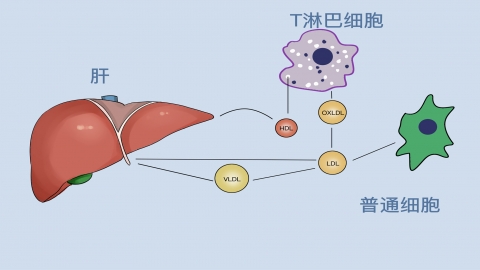What causes an elevated lymphocyte percentage?
Generally, the main causes of elevated lymphocyte percentage include stress response after strenuous exercise, significant emotional fluctuations, viral colds, infectious mononucleosis, chronic lymphocytic leukemia, and others. If discomfort occurs, it is recommended to seek timely medical consultation and treatment at a regular hospital. Detailed analysis is as follows:
1. Stress Response After Strenuous Exercise
During intense physical activity, the body is in a state of stress, with sympathetic nervous system activation promoting the temporary release of lymphocytes into the bloodstream, causing an increased percentage. Usually, there are no other uncomfortable symptoms. No special treatment is required; rest appropriately after exercise and replenish fluids and electrolytes as needed.

2. Significant Emotional Fluctuations
Long-term anxiety, anger, or sudden major emotional stress can affect the neuroendocrine system, leading to abnormal distribution of lymphocytes and an elevated percentage. Emotional regulation through listening to music, deep breathing, communication with others, and maintaining a calm mindset is recommended.
3. Viral Colds
Infections with viruses such as influenza virus or rhinovirus cause viral colds. Viral stimulation triggers the immune system, promoting lymphocyte proliferation to combat the infection, resulting in an increased percentage, often accompanied by symptoms such as nasal congestion, runny nose, and fever. Antiviral medications such as oseltamivir phosphate capsules, Lianhua Qingwen capsules, or ribavirin granules may be taken under a physician's guidance.
4. Infectious Mononucleosis
This condition is caused by Epstein-Barr virus (EBV) infection. The virus invades lymphocytes and promotes their abnormal proliferation, increasing the lymphocyte percentage and causing symptoms such as fever, sore throat, and swollen lymph nodes. Medications such as acyclovir tablets, ganciclovir capsules, or paracetamol tablets may be used under medical supervision to inhibit viral replication and alleviate symptoms like fever and sore throat.
5. Chronic Lymphocytic Leukemia
Uncontrolled clonal proliferation of lymphocytes leads to increased numbers of mature lymphocytes in peripheral blood and a higher percentage. Symptoms may include fatigue, swollen lymph nodes, anemia, and others. Under a physician's guidance, medications such as ibrutinib capsules, chlorambucil tablets, or rituximab injection may be used to inhibit lymphocyte proliferation and control disease progression. In some cases, allogeneic hematopoietic stem cell transplantation may be necessary to restore normal blood cell production and improve prognosis.
In daily life, maintaining regular sleep patterns and avoiding staying up late; eating a balanced diet rich in protein and vitamins; engaging in moderate exercise to enhance immunity; avoiding excessive fatigue and emotional stress; and undergoing regular health checkups to detect and treat hematologic diseases promptly are important for maintaining overall health.






